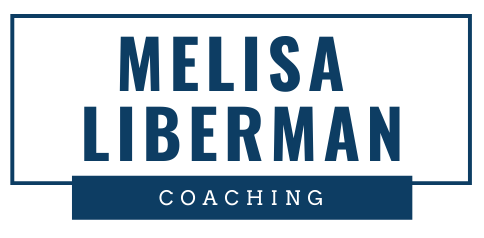5 Spending Habits to Make Business Owners More Successful

- Being a successful independent consultant requires you to be mindful of your financial thinking.
- Determine the effect such ingrained, employee-based ideas are having on your consulting business goals.
- Change your way of thinking about how you spend money to that of a business-owner.
Thinking back to my early corporate days at Accenture, I recall a time when a colleague and I wrote a business case asking the company to sponsor us to attend a Women’s Leadership Conference. The cost of the conference was $275.
Accenture approved it.
Looking back, I laugh at myself.
I probably invested $1000+ in billable time writing the business case for a $275 expense.
At the time, and throughout my corporate days, my go-to question was “how can the company reimburse me for this expense?”, whether it was
- Conferences
- Business Lunches
- Travel
- Trainings
If the company wouldn’t reimburse the expense, I never questioned whether I should invest in this on my own.
In some ways, it became a badge of honor to be someone who was invested in by the company.
Can you relate?
I know I’m not unique in this.
It’s a common employee mindset to assume “the company should reimburse for expenses that wouldn’t be incurring if I didn’t work here.”
But, after you become an independent consultant, this default corporate mentality about expenses can be a barrier to your success.
Specifically, a key to success as an independent is to shift the way you think about spending money.
In today’s blog, I’m sharing five common employee mindsets around expenses, and how they will slow you down as an Independent if you don’t replace them with new business-owner-based thinking.

Specifically, I’ll share:
- 5 outdated employee mindsets related to expenses
- The impact of thinking like an employee
- How to shift your mindset, so you think like (and therefore get the results) of a successful business owner
- Investments to consider as a business owner
The Employee Way of Thinking
First, let’s start with the five most common employee mindsets related to spending money.
Which of these can you relate to?
Employees Say: “I need approval to spend money”
Whether it’s
- Managing to budgets
- Following internal approval processes
- Getting pre-approval for expenses
…as employees, it’s engrained that we need someone else’s permission to spend money.
Specifically, we’re taught to think that we’re “not allowed to spend money without permission from someone else.”
Employees Say: Outgoing Money is an “Expense”
As employees, it’s rare to think that spending money is an investment.

Instead, we’re trained to think of outgoing money as an expense.
Whether you were managing the full P&L, approving team member or project expenses, and/or entering your own expenses for reimbursement, the “expense” concept is everywhere.
- Salaries = expense
- Travel costs = expense
- Business meals = expense
- Training & conferences = expense
Employees Say: Expenses should be controlled
We’re also taught to keep expenses under control, that we should:
- Limit them
- Contain them
- Justify them
- Bury them
- Avoid them
Employees Say: Expenses are a negative
Underlying the idea that expenses should be controlled, is that expenses are bad.
I can’t think of a time when a corporate employee raises their hand in a proud moment to describe how they’ve spent money.
Can you?
It’s the opposite.
As employees, we’re taught that expenses are a negative, and we learn to play the game of managing perceptions related to our expense lines.
Employees Say: Expenses should be reimbursed
As employees, we’re taught that expenses should be reimbursed.
We expect the basic expenses to be reimbursed without question – airfare, hotels, etc.
And we think of ways to get reimbursed for the expenses that are seen as more optional, like that story of getting the conference reimbursed I shared at the beginning.
As employees, getting our expenses reimbursed is a base expectation, and that we shouldn’t need to pay out any of our salary toward cost associated to our role.
The Impact of Employee-Based Thinking:
Next, let’s talk about the impact of keeping these mindsets in place now that you’re a business owner.
As business owner, thinking that all outgoing money is an expense will set you up to miss opportunities to invest in and grow your business.

After you become an independent consultant, if you continue thinking about spending money as “expenses”, you’ll inhibit your ability to meet your revenue goals, to maintain a consistent flow of revenue, and to have the flexibility that led you to become an IC in the first place.
You’re running a business now.
Successful businesses have
- Revenue – money coming in
- Expenses – cost of doing business
- Investments – funding activies that fuel, protect and accelerate revenue
Simply put, there is a cost to doing business.
As an IC, you are no longer getting a paycheck.
You are running a business with a P&L and Balance Sheet.
I can’t tell you how common it is that independents don’t realize this.
They continue to think about expenses as they did when they were employees.
I know there was a long period of time where I was still thinking of my business as a way to generate my monthly paycheck, and didn’t occur to me that I should be looking at my role differently, more strategically, to make more money and have more flexibility.
#ThinkLikeABoss: Spend Money to Make Money… Selectively
Now that you are aware of the five employee mindsets that could keep you stuck and not living up to your potential as an independent consultant, let’s talk about how to adjust into an owner mindset.
A key to your success as an independent consultant is to
Be aware of how you think about spending money
Pinpoint the impact those legacy, employee-based thoughts that are stifling your consulting business goals
Purposefully shift your thinking into a new, business-owner mode as it relates to spending money.
Now that you’re an Independent, the only permission you need to make and spend money is your own.
Put this story into action!
Here are specific suggestions for you to transform your thought processes around spending money from employee to business owner:
Employee Mindset (old) |
Business-Owner Mindset (new) |
| “I need approval to spend money” | I decide how and when to invest in my business (e.g. to fuel, protect and accelerate revenue. |
| Outgoing Money is an “Expense” | Outgoing money is an investment |
| Expenses should be controlled | Outgoing money is planned (including planning for the unplanned) |
| Expenses should be reimbursed | Outgoing money should lead to a return such as: (1) increased revenue (2) increased time (3) increased skill (4) supporting scaling of my business |
| Expenses are a negative | Outgoing money can be incredibly beneficial to reaching my business goals |
Think about all the investments you could make in the next year and make a plan for yourself:

- Clearly define your business goals
- Identify opportunities to invest (aka spend money) to accelerate, protect, and/or scale to your business goals. Examples:
- Virtual assistants
- Marketing and advertising
- Sub-contractors
- Referral fees
- Conferences and events
- Coaches
- As you make this plan, notice where you you feel resistant to spending money because of the lingering employee mindset
- Purposefully shift your thinking into a new, business-owner mode as it relates to spending money so you evolve into the successful business owner you know you’re capable of being.
Don’t Miss Melisa’s Podcast on this Topic
About Melisa Liberman Coaching:

Melisa is a business growth coach who focuses on helping independent consultants double their revenue without sacrificing their personal lives. She’s created several successful independent consulting businesses of her own over the last 9 years and is passionate about helping her clients do the same. You can find her in the MBO app store and leverage special MBO preferred rates on her consulting programs and services.
Thinking back to my early corporate days at Accenture, I recall a time when a colleague and I wrote a business case asking the company to sponsor us to attend a Women’s Leadership Conference. The cost of the conference was $275.
Accenture approved it.
Looking back, I laugh at myself.
I probably invested $1000+ in billable time writing the business case for a $275 expense.
At the time, and throughout my corporate days, my go-to question was “how can the company reimburse me for this expense?”, whether it was
- Conferences
- Business Lunches
- Travel
- Trainings
If the company wouldn’t reimburse the expense, I never questioned whether I should invest in this on my own.
In some ways, it became a badge of honor to be someone who was invested in by the company.
Can you relate?
I know I’m not unique in this.
It’s a common employee mindset to assume “the company should reimburse for expenses that wouldn’t be incurring if I didn’t work here.”
But, after you become an independent consultant, this default corporate mentality about expenses can be a barrier to your success.
Specifically, a key to success as an independent is to shift the way you think about spending money.
In today’s blog, I’m sharing five common employee mindsets around expenses, and how they will slow you down as an Independent if you don’t replace them with new business-owner-based thinking.

Specifically, I’ll share:
- 5 outdated employee mindsets related to expenses
- The impact of thinking like an employee
- How to shift your mindset, so you think like (and therefore get the results) of a successful business owner
- Investments to consider as a business owner
The Employee Way of Thinking
First, let’s start with the five most common employee mindsets related to spending money.
Which of these can you relate to?
Employees Say: “I need approval to spend money”
Whether it’s
- Managing to budgets
- Following internal approval processes
- Getting pre-approval for expenses
…as employees, it’s engrained that we need someone else’s permission to spend money.
Specifically, we’re taught to think that we’re “not allowed to spend money without permission from someone else.”
Employees Say: Outgoing Money is an “Expense”
As employees, it’s rare to think that spending money is an investment.

Instead, we’re trained to think of outgoing money as an expense.
Whether you were managing the full P&L, approving team member or project expenses, and/or entering your own expenses for reimbursement, the “expense” concept is everywhere.
- Salaries = expense
- Travel costs = expense
- Business meals = expense
- Training & conferences = expense
Employees Say: Expenses should be controlled
We’re also taught to keep expenses under control, that we should:
- Limit them
- Contain them
- Justify them
- Bury them
- Avoid them
Employees Say: Expenses are a negative
Underlying the idea that expenses should be controlled, is that expenses are bad.
I can’t think of a time when a corporate employee raises their hand in a proud moment to describe how they’ve spent money.
Can you?
It’s the opposite.
As employees, we’re taught that expenses are a negative, and we learn to play the game of managing perceptions related to our expense lines.
Employees Say: Expenses should be reimbursed
As employees, we’re taught that expenses should be reimbursed.
We expect the basic expenses to be reimbursed without question – airfare, hotels, etc.
And we think of ways to get reimbursed for the expenses that are seen as more optional, like that story of getting the conference reimbursed I shared at the beginning.
As employees, getting our expenses reimbursed is a base expectation, and that we shouldn’t need to pay out any of our salary toward cost associated to our role.
The Impact of Employee-Based Thinking:
Next, let’s talk about the impact of keeping these mindsets in place now that you’re a business owner.
As business owner, thinking that all outgoing money is an expense will set you up to miss opportunities to invest in and grow your business.

After you become an independent consultant, if you continue thinking about spending money as “expenses”, you’ll inhibit your ability to meet your revenue goals, to maintain a consistent flow of revenue, and to have the flexibility that led you to become an IC in the first place.
You’re running a business now.
Successful businesses have
- Revenue – money coming in
- Expenses – cost of doing business
- Investments – funding activies that fuel, protect and accelerate revenue
Simply put, there is a cost to doing business.
As an IC, you are no longer getting a paycheck.
You are running a business with a P&L and Balance Sheet.
I can’t tell you how common it is that independents don’t realize this.
They continue to think about expenses as they did when they were employees.
I know there was a long period of time where I was still thinking of my business as a way to generate my monthly paycheck, and didn’t occur to me that I should be looking at my role differently, more strategically, to make more money and have more flexibility.
#ThinkLikeABoss: Spend Money to Make Money… Selectively
Now that you are aware of the five employee mindsets that could keep you stuck and not living up to your potential as an independent consultant, let’s talk about how to adjust into an owner mindset.
A key to your success as an independent consultant is to
Be aware of how you think about spending money
Pinpoint the impact those legacy, employee-based thoughts that are stifling your consulting business goals
Purposefully shift your thinking into a new, business-owner mode as it relates to spending money.
Now that you’re an Independent, the only permission you need to make and spend money is your own.
Put this story into action!
Here are specific suggestions for you to transform your thought processes around spending money from employee to business owner:
Employee Mindset (old) |
Business-Owner Mindset (new) |
| “I need approval to spend money” | I decide how and when to invest in my business (e.g. to fuel, protect and accelerate revenue. |
| Outgoing Money is an “Expense” | Outgoing money is an investment |
| Expenses should be controlled | Outgoing money is planned (including planning for the unplanned) |
| Expenses should be reimbursed | Outgoing money should lead to a return such as: (1) increased revenue (2) increased time (3) increased skill (4) supporting scaling of my business |
| Expenses are a negative | Outgoing money can be incredibly beneficial to reaching my business goals |
Think about all the investments you could make in the next year and make a plan for yourself:

- Clearly define your business goals
- Identify opportunities to invest (aka spend money) to accelerate, protect, and/or scale to your business goals. Examples:
- Virtual assistants
- Marketing and advertising
- Sub-contractors
- Referral fees
- Conferences and events
- Coaches
- As you make this plan, notice where you you feel resistant to spending money because of the lingering employee mindset
- Purposefully shift your thinking into a new, business-owner mode as it relates to spending money so you evolve into the successful business owner you know you’re capable of being.
Don’t Miss Melisa’s Podcast on this Topic
About Melisa Liberman Coaching:

Melisa is a business growth coach who focuses on helping independent consultants double their revenue without sacrificing their personal lives. She’s created several successful independent consulting businesses of her own over the last 9 years and is passionate about helping her clients do the same. You can find her in the MBO app store and leverage special MBO preferred rates on her consulting programs and services.
Categories
Subscribe to the Insights blog to get weekly insights on the next way of working
Join our marketplace to search for consulting projects with top companies
Learn more about MBO
Learn how to start, run and grow your business with expert insights from MBO Partners
Learn how to find, manage and retain top-tier independent talent for your independent workforce.
MBO Partners publishes influential reports, cited by government and other major media outlets.
Research and tools designed to uncover insights and develop groundbreaking solutions.


